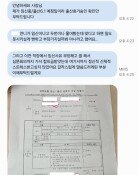Different Engineering Education Expectations
Different Engineering Education Expectations
Posted June. 28, 2007 03:14,
Education in Koreas engineering colleges often fails to meet the needs of industries, and this is fueling Koreas crisis in science and engineering. The Engineering Education Innovation Center of the engineering department at Yonsei University surveyed 350 human resources officials at some 100 small- and medium-sized companies, as well as big companies, including Samsung Electronics, LG Electronics, Doosan Heavy Industries and Construction, and Nexon. In the survey, they gave engineering graduates an F grade in 13 out of 14 categories. Engineering graduates themselves also said, Education in college is not useful to our work.
On the contrary, however, engineering professors gave high marks of 97 out of 100 on their knowledge, and answered positively regarding their teaching skills, which revealed the different views colleges and companies have.
For two years, the Center surveyed 4,366 people, including 350 businessmen, 145 engineering professors, and some 1800 engineering graduates and undergraduates about their opinions on where Koreas engineering education stands.
Dr. Han Gyeong-hee, who led the study, said, Its been eight years since the Kim Dae-jung administration introduced the engineering education certificate system in 1999, which was aimed at tackling the crisis of science and engineering by producing engineers equipped with knowledge and skills suited to fields. However, universities and colleges still fall short of the expectations of businesses.
Engineering graduates workplace needs and lack flexibility
There is a prevailing sense of disaffection with engineering education in businesses.
According to the study, businessmen said the most important things that engineering students should learn are skills to communicate, to adapt themselves to organizations, and to apply the knowledge to the workplace, as well as a sense of responsibility.
In particular, while businessmen highly value the skill to adapt to the workplace, which is deemed mandatory in engineering education (87.6 out of 100 weighting required by industries), they rated engineering students 11.6 points lower than that by giving them a 76.
Their assessment of communication skills was 78 out of 100, showing the biggest difference of 12.4 from the expectation of businesses (90.4). Their organizational adaptability and sense of responsibility also recorded gaps of 12 and 11, respectively. The general knowledge in major, problem-solving skills, and skills to leverage on available information were also rated lower than industry requirements.
A sea of difference in the expectations of engineering education -
The reason why companies are dissatisfied with engineering education and graduates lies in the answers from graduates on their satisfaction with their education in college.
Asked whether their subjects in college were helpful to their work, they answered a little (3.84 out of 5) on mandatory subjects, just so so (3.03) on basic science, and just so so or not so much (2.68) on cultural subjects.
The study results also indicated the fact that information on industries is not being transferred to colleges, which was confirmed by the different choices of majors of graduates on the job and undergraduates.
Of the top five promising majors, the three majors chosen by undergraduates differed from those of graduates. While graduates ranked electrical engineering and metal engineering first and second each, undergraduates placed them in the sixth and tenth spots, respectively.
dnsp@donga.com
Headline News
- N. Korea launches cyberattacks on S. Korea's defense companies
- Major university hospital professors consider a day off each week
- Italy suffers from fiscal deficits from ‘Super Bonus’ scheme
- Inter Milan secures 20th Serie A title, surpassing AC Milan
- Ruling and opposition prioritize spending amid tax revenue shortfalls







